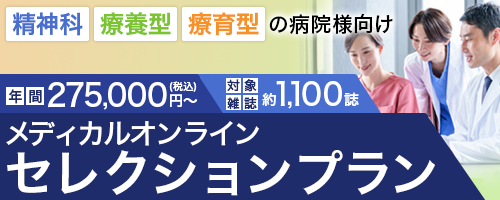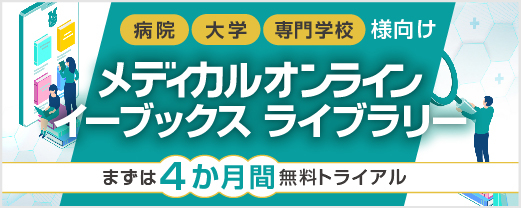アブストラクト
Japanese
| Title | がんを患うAYA世代の人々への支援において看護職が心がけていることと困難さ |
|---|---|
| Subtitle | 原著 |
| Authors | 服部佐知子1), 山本真実2), 布施恵子3), 松山久美1), 尾関麻衣子1), 奥村美奈子3) |
| Authors (kana) | |
| Organization | 1)岐阜県立看護大学 育成期看護学領域, 2)浜松医科大学 医学部看護学科 地域看護学講座, 3)岐阜県立看護大学 成熟期看護学領域 |
| Journal | 岐阜県立看護大学紀要 |
| Volume | 21 |
| Number | 1 |
| Page | 27-36 |
| Year/Month | 2021 / 3 |
| Article | 原著 |
| Publisher | 岐阜県立看護大学 |
| Abstract | 「要旨」本研究の目的は, AYA世代でがんを患う人々への支援において, 医療機関の看護職が心がけていることと, 支援における困難さを明らかにすることである. 調査方法は, A県下で地域の小児がん診療を行う連携病院及び小児がん患者等の長期療養体制強化のための連携病院に勤務し, AYA世代の人々への支援の経験がある看護職を対象としたグループインタビューである. A県内での地域の小児がん診療及び長期療養体制強化を担う連携病院の2施設で研究参加に同意が得られた7名の看護職にインタビューを実施し質的帰納的分析を行った結果, 看護職が支援において心がけていることは【思春期から青年期前半の特徴を捉えた関わり】【患者自身が治療を納得して受けられるような関わり】の2つのカテゴリに分類された. 看護職が支援において困難さを感じていることは【発達段階に合わせた支援の難しさ】【家族を含めた支援の難しさ】【学校の支援体制が分からない中で情報共有し連携することの難しさ】を含む7つのカテゴリに分類された. AYA世代は, 親から自立し, アイデンティティを確立していく過渡期であることや, 進学・結婚などのライフイベントを経験していくといった変化の渦中にある. そのため, がんを患うことでAYA世代特有の多様な課題を抱える. 看護職は, AYA世代の看護において, AYA世代の特徴を捉えた関わりや, 患者が納得して治療を受けられるように心がけていた. そして看護職は, 支援において学校生活が見えにくいことによる学校との連携の難しさを感じていることや患者の思いと家族の思いの双方を捉えて支援していくことが明らかとなった. |
| Practice | 看護学 |
| Keywords | AYA世代, 小児がん, がん患者, 小児がん連携病院, AYA generation, pediatric cancer, cancer patients, pediatric cancer collaborative hospital |
English
| Title | What Nurses are Keeping in Mind and the Difficulties Experienced in Supporting Cancer Patients in the AYA Generation |
|---|---|
| Subtitle | |
| Authors | Sachiko Hattori1), Mami Yamamoto2), Keiko Fuse3), Kumi Matsuyama1), Maiko Ozeki1), Minako Okumura3) |
| Authors (kana) | |
| Organization | 1)Nursing of Children and Child Rearing Families, Gifu College of Nursing, 2)Department of community Nursing, Faculty of Nursing, Hamamatsu University School of Medicine, 3)Nursing of Adults, Gifu College of Nursing |
| Journal | Journal of Gifu College of Nursing |
| Volume | 21 |
| Number | 1 |
| Page | 27-36 |
| Year/Month | 2021 / 3 |
| Article | Original article |
| Publisher | Gifu College of Nursing |
| Abstract | [Abstract] The purpose of this study is to clarify what the nurses in medical institutions are keeping in mind and the difficulties experienced in supporting cancer patients in the AYA generation. The survey was conducted as a group interview with nurses who have experience in providing support to AYA generation patients who work at a collaborative hospital in the A prefecture that provides local pediatric cancer treatment or a collaborative hospital that concentrates on strengthening long-term care for pediatric cancer patients. As a result of conducting interviews and qualitative inductive analysis with seven nurses who agreed to participate in the research at two facilities of the collaborative hospitals handling medical care of pediatric cancer and strengthening longterm care for pediatric cancer patients in the A prefecture, what the nurses try to support was classified into two categories of [a relationship which captures the characteristics of adolescence and young adulthood], and [a relationship in which the patient can accept the treatment they will undergo]. The supporting difficulties perceived by nurses were classified into seven categories, including [difficulty of assistance tailored to the patient's developmental stage], [difficulty of support including the family], and [difficulty in sharing information and collaborating without knowing the school's support system]. The AYA generation are in a transitional period in which they become independent from their parents and establish their identity, and they are undergoing changes such as going on to higher education, getting married, and experiencing other life events. Therefore, as they suffer from cancer, they face various challenges unique to the AYA generation. Upon nursing the AYA generation, nurses have kept in mind to make a relationship that captures the characteristics of the AYA generation, and to ensure that the patient can accept the treatment they will undergo. It became clear that nurses are finding difficulty in cooperating with schools for support due to not being able to see school life, and that they will support while grasping both the will of patients and their families. |
| Practice | Nursing |
| Keywords | AYA generation, pediatric cancer, cancer patients, pediatric cancer collaborative hospital |
- 全文ダウンロード: 従量制、基本料金制の方共に770円(税込) です。
参考文献
- ウヴェ・フリック (Uwe Flick). (1995)/(2002). 小田博志, 山本則子, 春日常ほか (訳), 質的研究入門 -人間科学のための方法論 (pp.239-240). 春秋社.
- 福田みわ, 渡部一宏, 吉永真理. (2018). AYA世代がん患者支援の現状と課題. 昭和薬科大学紀要, 52, 25-38.
- 原純一. (2014). 小児がん・思春期若年成人がん医療における課題. 日本小児科医会会報, 48, 102-104.
- 畑江郁子, 三国久美, 加藤依子. (2017). 小児がん体験者の退院後の生活と看護支援に関する文献検討. 北海道医療大学看護福祉学部会誌, 13(1), 43-48.
- 平山貴敏, 清水研. (2018). 精巣腫瘍を含む AYA世代のがん患者に対する心理社会的問題と支援. 泌尿器外科, 31(12), 1625-1629.
残りの9件を表示する
- 加藤由香. (2019). AYA世代を迎えた小児がん経験者の現状と課題. がん看護, 24(1), 39-42.
- 栗本景介, 向井洋介, 生須勇貴. (2018). AYA世代のがん医療・支援のあり方に関する行政の取り組み. ファルマシア, 54(12), 1109-1113.
- 三善陽子. (2018). AYA世代がん患者の治療とその問題点. ファルマシア, 54(12), 1114-1118.
- 野波千晃, 岡林ひとみ, 牛窓帆乃香. (2018). AYA世代がん患者と両親に対する看護師の葛藤 〜告知から看取りまでの意思決定支援を振り返る〜. 高知赤十字病院医学雑誌, 23(1), 65-72.
- 小原明. (2018). AYAがんの診療実態, 医療従事者が知っておきたい AYA世代がんサポートガイド (pp.7-10). 金原出版.
- 清水千賀子. (2018). AYAがん患者のニーズ, 医療従事者が知っておきたい AYA世代がんサポートガイド (pp.15-18). 金原出版.
- 富岡晶子. (2018). AYA世代がん患者の看護. ファルマシア, 54(12), 1119-1123.
- 津村明美. (2019). AYA世代のがん看護に必要な要素. がん看護, 24(1), 45-47.
- 山口そのえ, 嶋田明, 山本裕子ほか. (2017). 小児がん患者の復学をスムーズにする要因の検討 院内学級に通級したことのある子どもの体験より. 小児がん看護, 12(1), 25-30.



